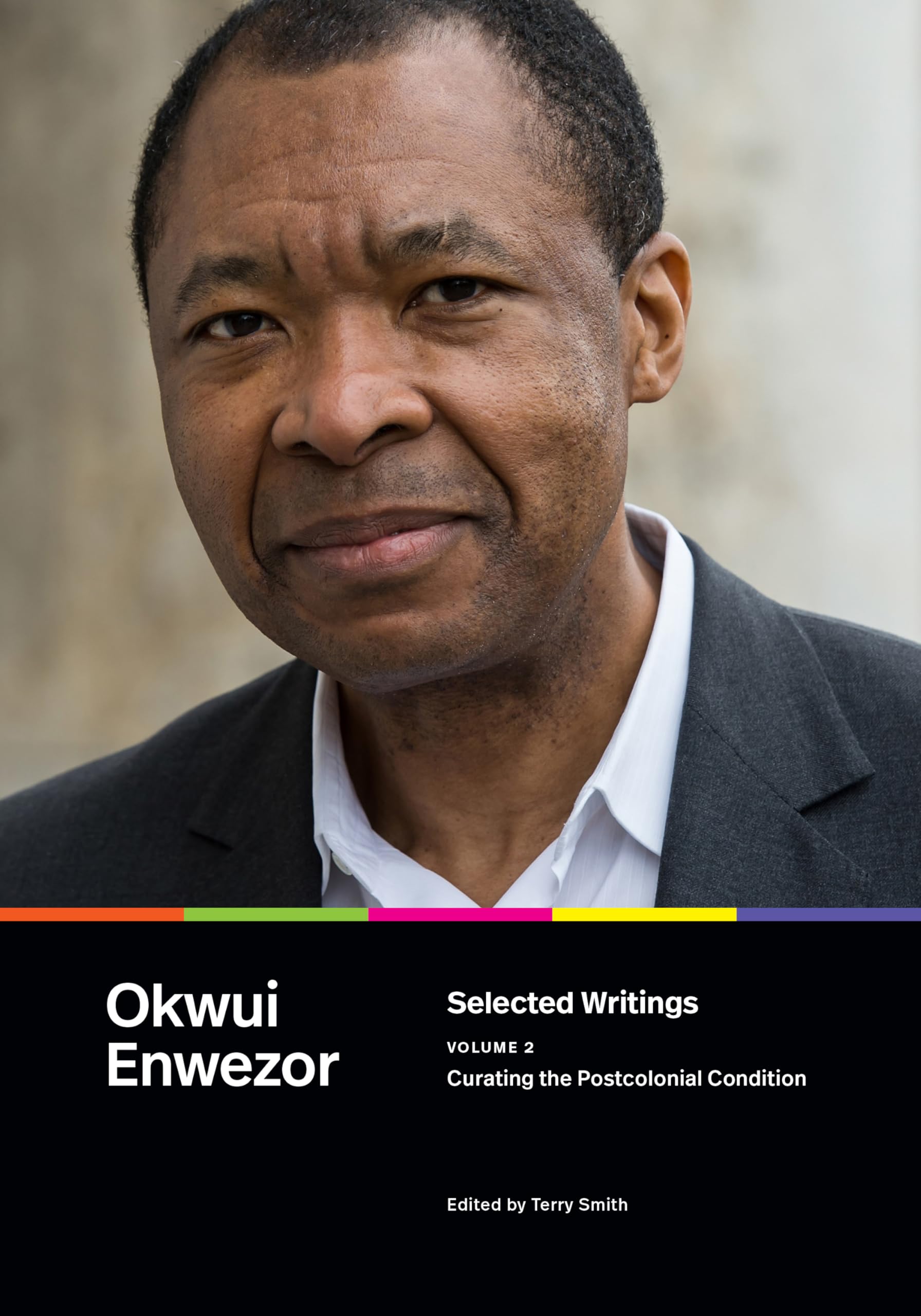Okwui Enwezor is widely regarded as a leader among the brilliant curators who emerged in the 1990s to set agendas for understanding the global expansiveness of contemporary art. Among his pathfinding exhibitions were the second Johannesburg Biennale (1997), the paradigm-shifting Documenta 11 (2002), Archive Fever (2008), and Postwar (2016). In addition to breaking ground as a curator, Enwezor was also a prolific critic, essayist, and theorist. Selected Writings —a landmark two-volume set—brings together Enwezor’s most influential and foundational works. Spanning a quarter-century, these selections reflect the depth and breadth of Enwezor’s writing and its role in his tireless efforts to decolonize the art world. Volume 2, Curating the Postcolonial Condition , includes seventeen essays written between 2006 and 2019. Drawn from exhibition catalogs, art journals, interviews with artists, art reviews, curatorial statements, historical studies, and book chapters, these texts show him striving to fulfil the second main ambition that drove his career: enabling a critical, diasporic imagining of postcoloniality that would become pervasive within global art discourse. Demonstrating that his writing helped fulfill this goal, this collection reaffirms Enwezor’s status as a transformational figure in the global contemporary art world. “Okwui Enwezor has been among the most stimulating and politically engaged curators in the last hundred years. He always had a finger on the pulse of practicing artists and critical theory, as evidenced in these writings. This informed his majestic curatorial approach for making the most important, groundbreaking exhibitions in the twenty-first century, from Documenta to Venice to Sharjah. These essays constitute one of the most important documents and legacies for understanding contemporary art and curatorial practice today.”― Isaac Julien “Okwui Enwezor was one of a kind in every respect. In a mere twenty-five years, he single-handedly transformed the culture of contemporary art by fully integrating African and African diaspora artists into a global understanding of modern and contemporary practice. His hugely influential writings were vital to his overall project of recasting the entire discourse on twentieth- and twenty-first-century African and Afro-diaspora art. This volume’s depth and range of selections represents the sheer comprehensiveness of Enwezor’s achievement and will extend his work’s ongoing impact.”― Kobena Mercer, author of , Travel & See: Black Diaspora Art Practices since the 1980s "It is bittersweet to read these essays while wishing this searing, contrarian mind were still with us, still world-building, as we hard pivot into a new post-global, post-liberal era. ... The books elucidate the many tools and methods Enwezor developed throughout his career, encouraging us to see the contemporary not as a break from the past but as a complex storm of past histories, old habits, and new possibilities that surround and inform art."― Lauren Cornell , Art in America “Enwezor insistently refuses to define Africa and its people negatively, as somebody else’s “other.” Instead, his work constitutes a vitalist affirmation of present and future possibilities for the continent and its contemporary artists and art.” ― Carlos Basualdo , 4Columns "Books such as Okwui Enwezor: Selected Writings are a boon to future generations, making it impossible to forget or erase the foundational work that has been done. In a world ever antagonistic to the potential of African autonomy, it presents a rich set of primary texts for critically minded artists, critics, curators, and scholars. . . . These are crucial orienting points for those who remain committed to decolonial modes of contingency, entanglement, and rupture in the face of revisionist canonical narratives." ― Oluremi C. Onabanjo , 4Columns "Taken from us far too early, Enwezor’s writings are indispensable tools for those who want to continue the important work of reformulating the world of art with justice and equity in mind."― Hrag Vartanian , Hyperallergic "The book demonstrates his optimism, his willingness to fight, and his youthful energy. Behind the writing, there was a man, always in a hurry, always busy with scores of ideas and projects, as if he knew the clock was ticking and he would not have enough time. . . . As in a musical variation, where a theme undergoes a modification such that it is more or less recognized as it changes in melody, harmony, or rhythm, here we see Enwezor's thought as a series of variations on ideas that are combined to varying degrees until the initial theme can become almost unrecognizable. That theme, ultimately, is himself."― Simon Njami , Artforum "The two books of Okwui Enwezor’s selected writings . . . evidence a curator and critic living and travelling restlessly across the globe. Terry Smith has edited a volume of essays which can be understood as a collection of the













